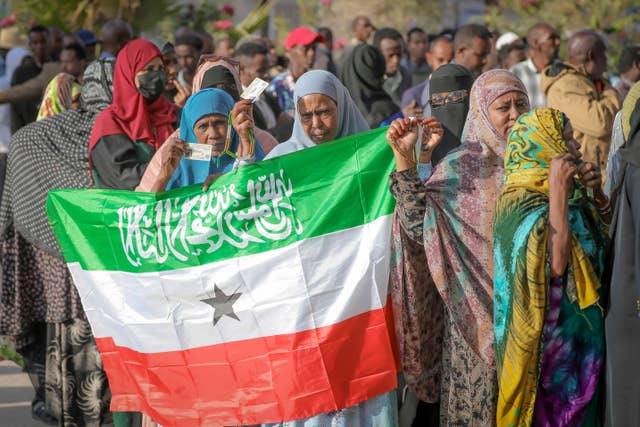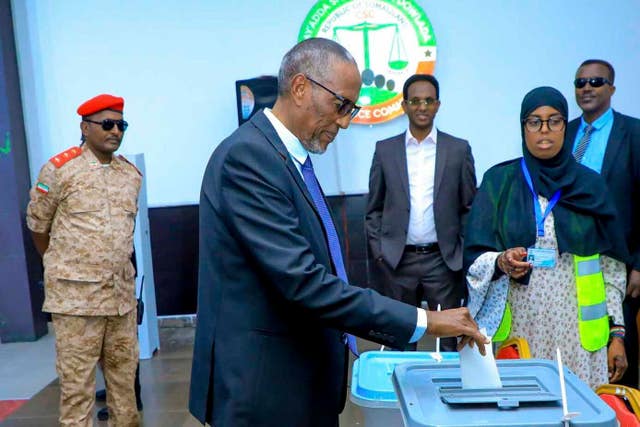
The opposition leader in Somalia’s breakaway region of Somaliland won last week’s election, the electoral commission has said.
Abdirahman Mohamed Abdullahi of the main opposition Waddani Party received more than 50% of the votes cast.
Mr Abdullahi, 69, served as Somaliland’s parliament speaker in 2005.
The opposition party campaigned on a platform of democratic reforms and social cohesion. They promised to turn around the economy and resolve youth unemployment.

President Muse Bihi Abdi of the ruling Kulmiye Party, who was seeking a second term after seven years in office, came second with just over 30%. During his term in office, he pushed for Somaliland’s international recognition.
The election had been delayed twice since 2022 because of a lack of funding and for other reasons.
Somaliland, which declared independence from Somalia in 1991 amid a descent into conflict, has sustained its own government, currency and security structures despite lacking international recognition.
Over the years, the region has built a stable political environment in sharp contrast to Somalia’s security struggles.
Somaliland’s latest agreement with neighbouring Ethiopia granting it access to the Indian Ocean in exchange for recognition has caused political tension with Somalia, which accuses Ethiopia of undermining its territorial integrity.

The opposition has been urging more economic benefits to Somaliland from the agreement and criticised how it was hurriedly and secretly negotiated.
“Waddani Party have raised concerns about the MoU’s (memorandum of understanding’s) lack of tangible benefits for Somaliland, particularly in trade and regional support,” Mohamed Husein Gaas, the director of the Raad Peace Research Institute in Somalia’s capital, Mogadishu, told The Associated Press.
Leaders in Somalia have reacted to the opposition party’s win in Somaliland with hopes for better relations between the country and the breakaway region.
Former Somali prime minister Hassan Ali Khaire wrote on X, formerly Twitter, that he hoped the new president would lead the region to a “path of peace, development, and democracy, and take a leading role in strengthening the brotherhood and unity of the Somali people”.
The president of neighbouring Djibouti, Ismail Omar Guelleh, congratulated Somaliland’s president-elect.


Comments: Our rules
We want our comments to be a lively and valuable part of our community - a place where readers can debate and engage with the most important local issues. The ability to comment on our stories is a privilege, not a right, however, and that privilege may be withdrawn if it is abused or misused.
Please report any comments that break our rules.
Read the rules hereLast Updated:
Report this comment Cancel